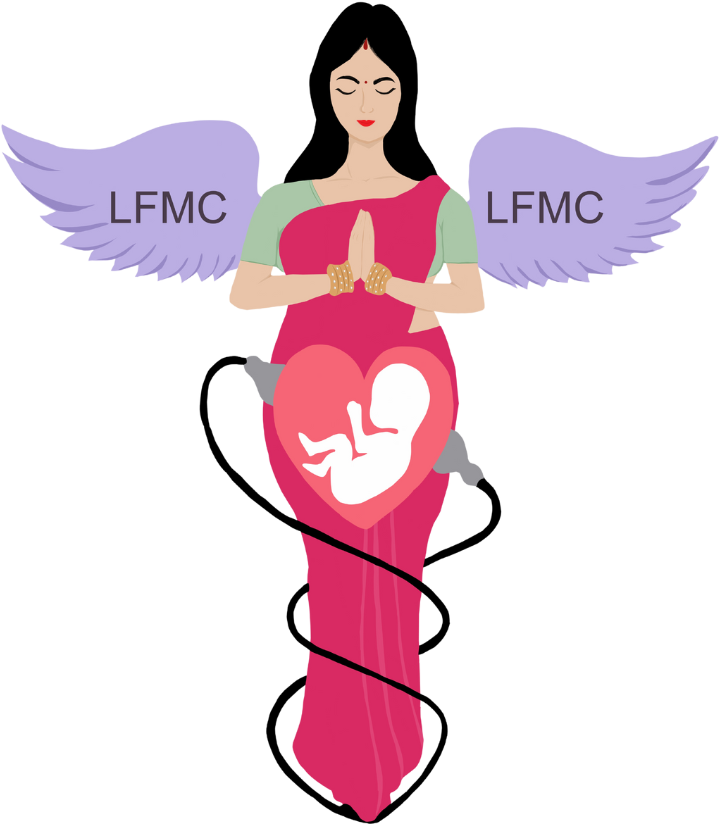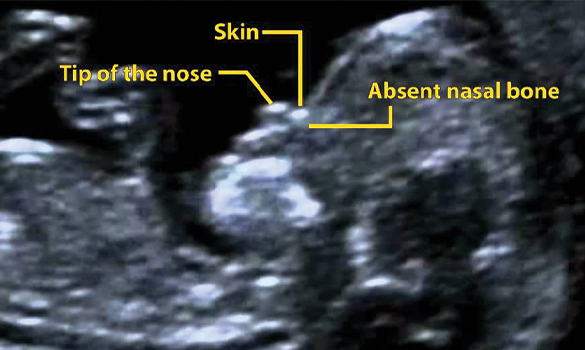What is the Nasal Bone, and Why is it Important?
The nasal bone is a small bone in the face that supports the nose structure. In a developing fetus, it usually starts forming early in pregnancy and can typically be detected on an ultrasound between the 11th and 14th weeks of gestation. During a routine ultrasound at this stage, the sonographer measures several markers that help assess the baby’s growth and screen for potential chromosomal abnormalities. The nasal bone is one of these critical markers.
What Does an Absent Nasal Bone Indicate?
In certain pregnancies, the nasal bone may not be visible on the ultrasound, and this is commonly referred to as an “absent nasal bone.” This finding can be associated with an increased risk of chromosomal abnormalities, particularly Down syndrome (trisomy 21). Studies have shown that a significant percentage of babies with Down syndrome have an absent or hypoplastic (underdeveloped) nasal bone.
Reasons for a Missing Nasal Bone
- Chromosomal Abnormalities: Down syndrome (Trisomy 21) is most frequently associated with the absence of a nasal bone. But it can also be connected to other chromosomal disorders such as Trisomy 13 and 18.
- Ethnic Variations: Without any underlying disorders, the nasal bone may naturally be less prominent or nonexistent in certain ethnic groups.
- Other Factors: Rarely, a nasal bone deficiency may be an isolated observation without a chromosomal or anatomical abnormality connected with it.
Diagnosis
- Ultrasound Screening: An ultrasound, usually performed between weeks 11 and 14, is the main technique used to identify a missing nasal bone. During the nuchal translucency scan, the sonographer will check to see if the nasal bone is present.
- Additional Testing: It could be advised to do more diagnostic testing if the absence of a nasal bone is found. These can involve invasive techniques like amniocentesis or chorionic villus sampling (CVS) for a conclusive diagnosis, or non-invasive prenatal testing (NIPT), which examines fetal DNA in the mother's blood.
Why Early Detection Matters
Early detection of potential concerns allows for more informed decision-making. Whether it’s choosing further testing or preparing for the possibility of a special-needs child, having the information early can empower you to plan ahead.
Consequences for the Baby
If a baby's nasal bone isn't visible during an ultrasound, it might suggest a higher chance of a chromosomal issue, but it doesn't mean there's definitely a problem. If further tests show something unusual, the parents and doctors will discuss what that could mean and what options are available. It's important to note that many babies born without a visible nasal bone can still be perfectly healthy, especially if there are no other signs of a problem.
Practical and Emotional Aspects for Parents to Consider
For pregnant parents, learning that a nasal bone is missing might be distressing. Having a healthcare team that is supportive and able to offer guidance and clear information is essential. Genetic counselling can help parents make educated decisions regarding their children by helping them understand the potential dangers and ramifications of their pregnancy.
Pregnancy is a time filled with so many emotions, hopes, and dreams. When faced with unexpected findings like an absent nasal bone, it’s important to approach the situation with as much information and support as possible. Every pregnancy is unique, and so is every baby. Regardless of the outcome, remember that you have options, support, and resources available to you. Stay informed, stay positive, and trust that you and your baby are on a journey that is uniquely yours.
The absence of a nasal bone in a prenatal ultrasound can be a significant indicator for certain genetic conditions, but it's essential to remember it's just one piece of the puzzle. This finding may warrant further testing and discussion with healthcare providers to fully understand its implications. While it can be concerning, having the right information and support helps parents navigate their options and prepare for their baby's future. By staying informed and proactive, families can ensure they are making the best choices for their child's health and well-being.
Our experts will guide you through every step, offering clear information, compassionate care, and the best options for your unique situation. With our state-of-the-art facilities and a team that truly understands the nuances of fetal medicine, we are here to support you and your family with confidence and care. You can trust that you’re in good hands with our dedicated specialists who are committed to ensuring the best possible outcomes for you and your baby.

